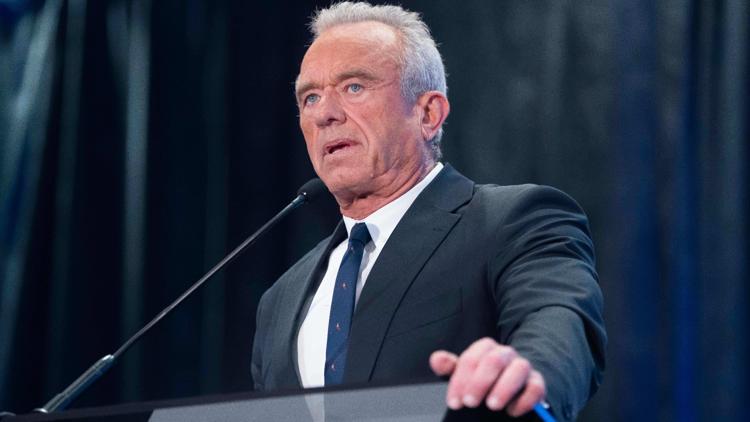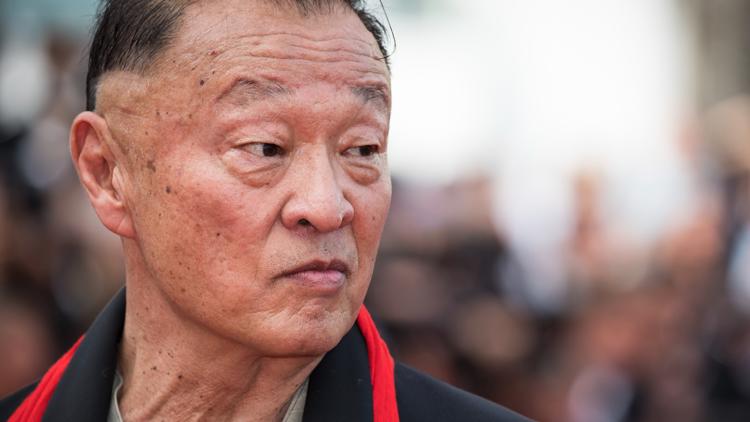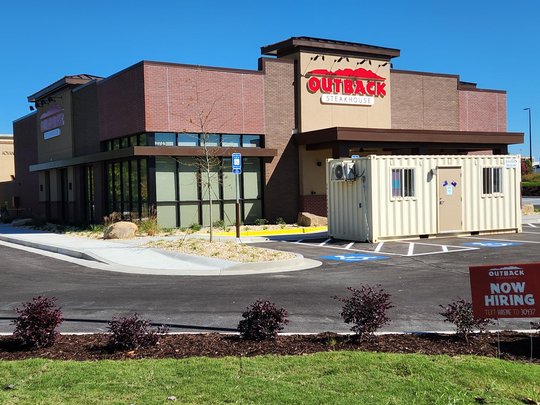GOP rebels extract tariff concession from House leaders
A handful of House Republicans extracted concessions from House GOP leaders on tariff policy after rebelling on a procedural vote Tuesday. GOP leaders agreed to shave two months off the length of a prohibition on votes that could end President Trump’s tariffs, and agreed to create an informal tariff working group, according to two members...

A handful of House Republicans extracted concessions from House GOP leaders on tariff policy after rebelling on a procedural vote Tuesday.
GOP leaders agreed to shave two months off the length of a prohibition on votes that could end President Trump’s tariffs, and agreed to create an informal tariff working group, according to two members who negotiated the deal.
That deal was stuck in a dramatic scene on the House floor as six GOP members voted against a procedural rule. Rules tee up the terms for considering major legislation and are traditionally uniformly opposed by the minority and approved by the majority, but Republican factions have increasingly derailed them in order to exert leverage in recent years.
On Tuesday, GOP Reps. Don Bacon (Neb.) Jay Obernolte (Calif.), Kevin Kiley (Calif.), Tom McClintock (Calif.) Thomas Massie (Ky.), and Victoria Spartz (Ind.) joined with all Democrats in initially voting against the rule. In the razor-slim GOP majority, that would have caused the vote to fail and scrambled GOP leaders' plans for the week.
Tuesday's rule teed up a slate of bills relating to sentencing and crime policies in the District of Columbia. But tacked onto the measure was a provision extending the prohibition on votes to repeal the national emergency authority behind Trump’s sweeping tariffs.
The House previously voted to prohibit recall votes on some tariffs until Sept. 30 and on others to the end of the calendar year, while Tuesday’s rule extended that prohibition to March 31, 2026.
Leaders including Speaker Mike Johnson (R-La.) and House Majority Leader Steve Scalise (R-La.) huddled with the three California Republicans and Bacon as they aimed to convince them to switch their votes, as Massie and Spartz — two members who have often broken with GOP colleagues on spending matters — were across the House floor, not part of the negotiation.
Bacon was the first to flip to a yes, followed by Obernolte and McClintock. With those three flipping, the rule was adopted.
McClintock later told The Hill that GOP leaders agreed to add language in another rule vote this week — which will tee up a stopgap funding measure — to roll back the end of the prohibition on tariff votes to Jan. 31, rather than March 31.
And McClintock said Johnson agreed to form an informal House GOP working group on tariff policy, including possible measures to modify existing policy and clarify Congress’s role in setting it.
“Tariffs are bad public policy and are self-sabotaging at least part of the recovery that we've set in motion,” McClintock said, adding that, constitutionally, tariff authority should rest in Congress.
Bacon told The Hill that Rep. Adrian Smith (R-Neb.), who was part of the negotiation on the House floor, will lead that effort. Smith is the chair of the House Ways and Means Committee's Trade Subcommittee.
“We want the house to build tariff policy, and not give our authorities to the president,” Bacon told The Hill.
The tactic of rebelling on rule votes to extract concessions from leaders has become a regular, much-criticized tactic of the House Freedom Caucus in recent years. But Tuesday’s rebellion was notable in that no Freedom Caucus members were part of it, in a sign that the hard-line conservative group has drastically altered the norms of the lower chamber.
Kiley said his opposition was largely to the strategy of GOP leaders making "ad hoc" rules changes tailored to specific legislation, rather than abiding by universal rules that apply to all bills. He said he opposed a similar procedural measure Johnson had used earlier in the year to sink a proxy voting discharge petition, even after it had 218 signatures.
"I don't think it makes sense for us to only follow the rules of the House when it's convenient for us," he said. "And so that was the issue here."
But Kiley also acknowledged the issue is related to the Trump tariffs that have hurt certain industries in his home state. He suggested his "no" vote was also intended to send the message that Congress needs to exert more of its constitutional powers, rather than ceding them to the president.
"More broadly, there is a need at this point for Congress to be a little more protective of its authority under Article 1, as an institution," he said.
Obernolte refused to explain his initial no vote and flip to yes.
"We'll leave that between us and our conference leadership. I don't think there's any purpose that's served by airing those discussions publicly," he said.
Mike Lillis contributed.
What's Your Reaction?























































